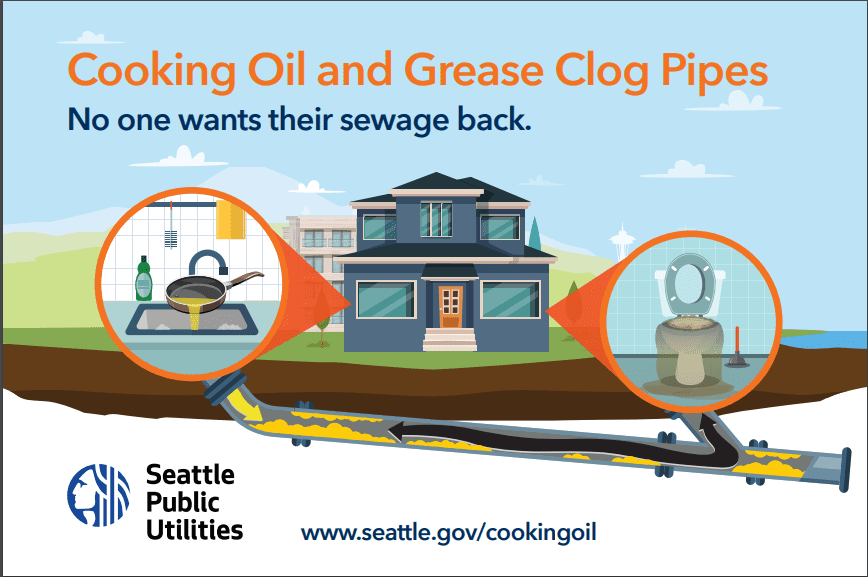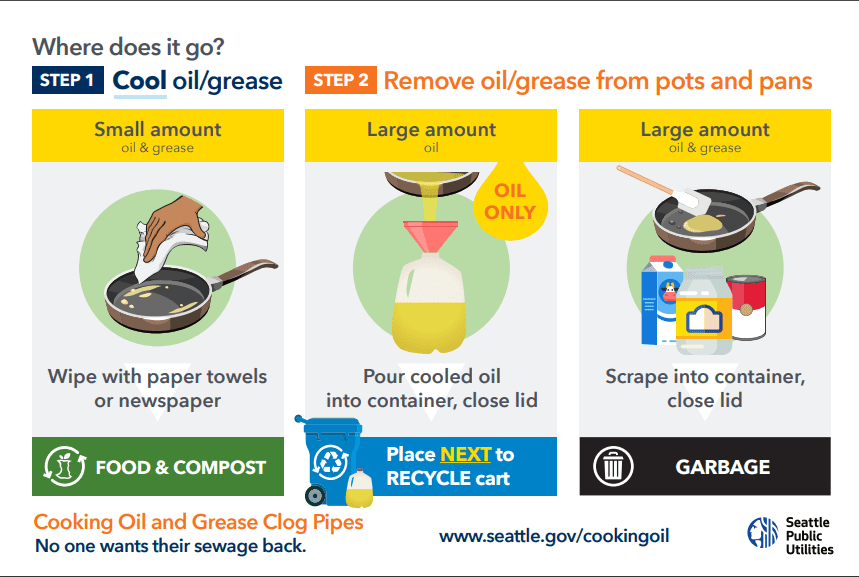
Many of our favorite traditions from this time of year are centered around food. And while our holidays may look a little different this time around, we still expect many of our friends, family, & neighbors are going to indulge their culinary skills and spend a little more time in the kitchen. Lots of time cooking can mean a lot more potential for clogging your pipes with the byproducts of those meals in the form of fat, oil, & grease.

You may not know it, but even small amounts of fat, oil, or grease going down your sink’s drain can build up in your pipes leading to hardened clogs, and even sewage backups which can be very costly. And we’re pretty sure most plumbers don’t offer Black Friday deals.
The good news is you can easily prevent your pipes from getting clogged in the first place by keeping fat, oil, and grease out of your sink by properly disposing them.
How To Dispose of Cooking Oil
Did you know that in Seattle, you can place used cooking oil out for recycling? It’s true! Your used oil becomes biodiesel, a locally produced alternative fuel that both reduces our need for imported oil and carbon emissions. To top it off, it also decreases the amount of trash that ends up in land-fills.
To recycle your used cooking oil, just follow these steps:
- Let the cooking oil to cool
- Pour it into a plastic jug or container and close the lid tightly
- Set it out next to your recycling cart on your next collection day
How to Dispose of Grease & Fat
Unlike used cooking oil, grease & fat can’t be recycled.
To dispose of your fats and grease, just follow these steps:
- Let your grease & fat cool
- For small amounts of grease & fat, use a paper towel or a scraper to wipe it into your kitchen compost
- For large amounts of grease & fat, use a scraper to wipe it into a secure container (like an empty take out container or margarine tub) and place it in your garbage
- Pro tip: If you know you’ll have more leftover grease in the near future, keep a grease container in your freezer, add to it until it’s nearly full, then toss it in the garbage. Empty coffee canisters work great for this.

For more information on fat, oil, & grease, and how to keep your pipes clear from clogs, visit our website here.